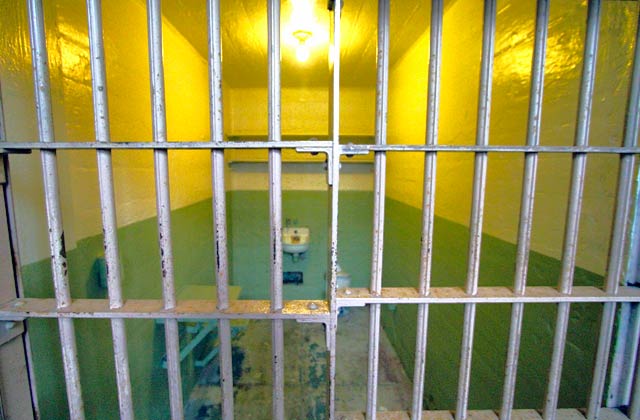Critics are speaking out against a bill that would require formerly incarcerated Florida residents to pay fines before they can have their voting rights restored, The New York Times reports. Those in favor of the bill, which was approved by the Republican-controlled state House Criminal Justice Subcommittee on Tuesday (March 19), insist its purpose is to resolve unanswered questions surrounding the Voting Restoration Amendment, also knows as Amendment 4, which voters approved during the midterm elections. But detractors say the bill will "unfairly punish those who are unable to pay and undermine the central objective of the amendment: ending permanent disenfranchisement."
As Colorlines previously reported shortly before Amendment 4 passed on November 6, its goal is to offer a second chance for those oppressed by harsh voting laws.
rnt
With the exception of people convicted of murder or felony sex crimes, the proposed state constitutional amendment would grant voting rights for anyone who has completed “all terms of sentence including parole or probation,” according to an op-ed from attorney Reggie Garcia for the Miami Herald. “That means they would have completed house arrest, jail and prison sentences and community service; paid restitution, court costs and fees; and fulfilled any other special conditions of parole or probation,” Garcia writes.
Florida’s House and Senate, which are both controlled by Republicans, believe the bill is necessary because Amendment 4 has "caused some confusion" over which crimes should fall under "murder" or "sexual offenses." But that doesn’t explain the financial issue. The push to force formerly incarcerated people to pay money to have their voting rights restored prompted Representative Adam Hattersley, a Democratic opponent of the bill, to call it "blatantly unconstitutional as a poll tax," according to The Times.
Sean Morales-Doyle, a lawyer at the Brennan Center for Justice, told The Times that the bill goes against everything Amendment 4 stands for. "This bill is just flying directly in the face of what two-thirds of Florida voters said very clearly," he said. Desmond Meade, president of the Florida Rights Restoration Coalition, released a statement to the Times, arguing that the bill is dangerous because it changes the definition of "completion of sentence." Meade explained, “Amendment 4 passed with broad support from people all over the state and from all walks of life." He continued, "Any legislation proposed should neither limit the rights created by Amendment 4 nor infringe upon the will of Florida voters."
According to The Times, the bill passed the subcommittee by a vote of 10 to 5 along party lines.
